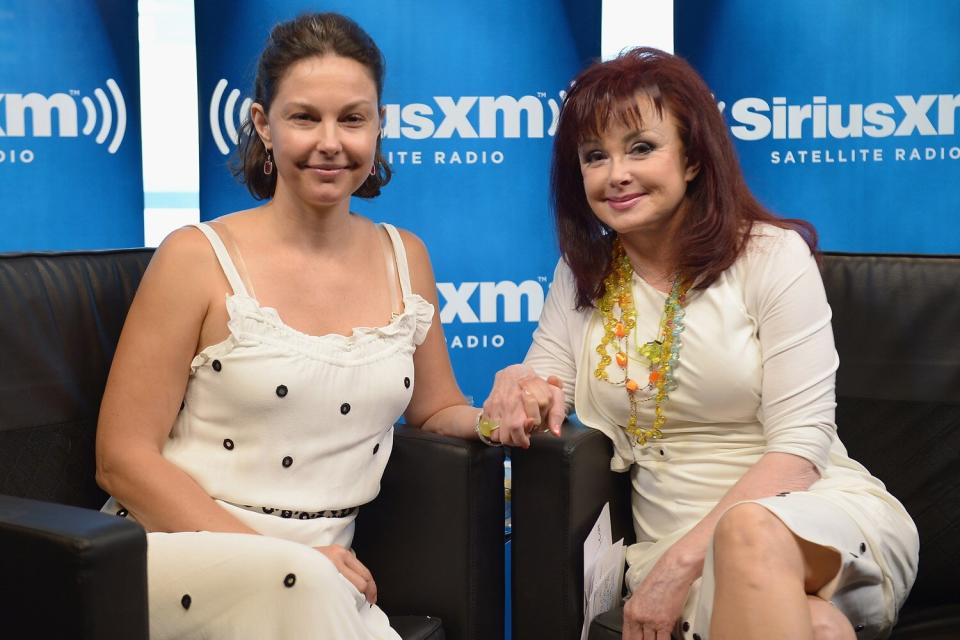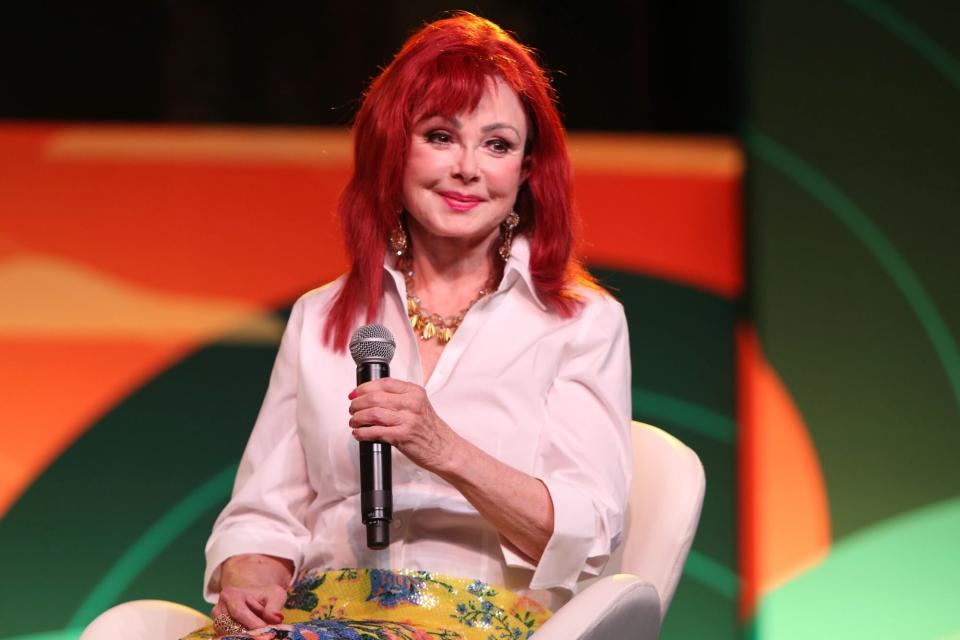Ashley Judd calls for privacy laws for bereaved families, says she felt like a 'suspect' in mother Naomi's death
Ashley Judd is calling for greater privacy protections for grieving families in the wake of her mother Naomi's death.
In a New York Times op-ed published Wednesday, the actress and activist recounted her painful experience following her mother's death by suicide in April, which included what felt like an "interrogation" by law enforcement on the day of the country icon's passing.
"In the immediate aftermath of a life-altering tragedy, when we are in a state of acute shock, trauma, panic, and distress, the authorities show up to talk to us," Judd wrote. "Because many of us are socially conditioned to cooperate with law enforcement, we are utterly unguarded in what we say."

Michael Loccisano/Getty Images Ashley Judd and Naomi Judd in 2012
She added, "I gushed answers to the many probing questions directed at me in the four interviews the police insisted I do on the very day my mother died — questions I would never have answered on any other day and questions about which I never thought to ask my own questions… Where and how will what I am sharing be stored, used, and made available to the public?"
Judd noted that in Tennessee, where her mother died, the law generally allows police reports from such investigations to be made public, including family interviews. She also expressed compassion for Vanessa Bryant, who has had to "endure the anguish of a leaked or legal public release of the most intimate, raw details surrounding a death" after her husband Kobe died in a helicopter crash in 2020.
"The raw details are used only to feed a craven gossip economy, and as we cannot count on basic human decency, we need laws that will compel that restraint," Judd wrote. In addition to these privacy protections, she also called to reform law enforcement procedures "that wreak havoc on mourning families and then exacerbate their traumatic grief by making it public."
Judd said she felt like a suspect in her mother's death when questioned by police. "I want to be clear that the police were simply following terrible, outdated interview procedures and methods of interacting with family members who are in shock or trauma and that the individuals in my mother's bedroom that harrowing day were not bad or wrong," she wrote. "I assume they did as they were taught."

Debby Wong/Shutterstock Naomi Judd in 2018
She continued, "It is now well known that law enforcement personnel should be trained in how to respond to and investigate cases involving trauma, but the men who were present left us feeling stripped of any sensitive boundary, interrogated and, in my case, as if I was a possible suspect in my mother's suicide."
Earlier this month, the Judd family filed a petition in a Tennessee county court to prevent the release of documents related to Naomi's death, including medical records and police interviews. An attorney for the Judds argued that the documents are "private, incredibly sensitive, and do nothing more than re-open the fresh wounds of Naomi Judd's death."
Naomi Judd died April 30, at 76. Ashley and her sister Wynonna said in a joint statement at the time, "Today we sisters experienced a tragedy. We lost our beautiful mother to the disease of mental illness. We are shattered. We are navigating profound grief and know that as we loved her, she was loved by her public. We are in unknown territory."
Related content:

 Yahoo News
Yahoo News 
